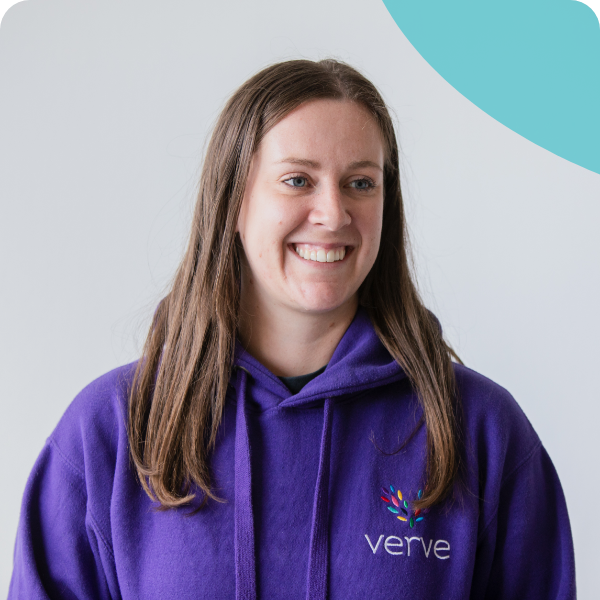Recently Cathi has been talking about sector-agnostic technology and how we can look to the efficiencies in other businesses to enhance what we offer in the finance industry.

I think it’s not just technology that is sector-agnostic (yes, I’m obsessed with the term) because, in my role as Chief Operations Officer of a very unique, multi-disciplined, adviser-service business, a lot of what I do would not seem to have direct comparisons in our profession, so I initially looked outside to get the skills I needed. However the more I speak to operational people in advice firms, other outsourced companies and even in satellite companies such as tech, accountancy and HR, there are a lot of commonalities in our industry and due to the (surprising to everyone) smash hit that was my top tips on suitability, I thought it might be a good chance to do a few tips on surviving a day in the life of a COO.
- Communication and collaboration. Everyone (should) know that clear communication is key in any business, and asking rather than telling gets much better results. However, I take this one step further with regular collaboration. I often walk into a meeting with our technical people (paraplanners, compliance geeks, developer nerds) and don’t even pretend to be the smartest person in that room. They have skills and knowledge that are absolutely crucial to the advancement of our business and I make sure to listen to them as much as I can. Even when it doesn’t really involve me. You’ll often hear a “tell me about that project because I’m really nosy” from me. A lot. Even if it doesn’t impact me directly, it will impact operations at some point and information is power, as they say. So don’t be afraid to ask, or to listen or to get involved.
- Writing. I write everything down. And I mean everything. Seemingly relevant or not. I’d rather have too much information than not enough. When you have a number of different departments with different needs and different projects running at different speeds (unintentional rhyming) it can start to get really messy, really quickly. I have a team of around 5 managers (who in turn have around 35 staff in the resources dept alone) and if even half of them have a question or an idea, that’s 20 pieces of information a day and if you can remember and organise and deal with that, then you’re a better person than me. I used to be rubbish at that game “I went to the shop and I bought”… who remembers that? Show your age.

- Planning. Once I’ve managed to decode my notes I add everything I need to technology to help me plan, prioritise, delegate, arrange and start work on. I usually use a Microsoft Planner board, which I have set at different levels of priorities, dates, project sizes and a number of other filters including personal (never let the life admin slide!). There are other planning boards available. Asana is a good one we used before we had Planner and of course, I would be lost without Dextera 😉 . This is our home-grown tech which we use to manage projects, communicate with our clients and has all of our firm framework to keep me on track with the business requirements. Honestly, it’s a great system, that I couldn’t live without now, but I would say that.
- Mindfulness. Calmness under pressure is a must-have for anyone who is thinking of getting into operations. Challenges happen regularly and having the skills to be able to cope with that effectively, while under pressure and supporting all of those involved is a talentyou need to hone up to an Olympian level. As a COO, you feel pressure from all sides, those who are relying on you from your team and those who are relying upon you from above (like when your CEO drops a last-minute Eclipse on you – hey Cathi 👋🏼). Finding ways to destress is as important. There are a lot of apps out there around mindfulness, coping with pressure, breathing meditation etc. I’m more likely to be found in bed under my 9kg weighted blanket with my emotional support Spiderman hot water bottle and the new Stephen King book, but you do you.

- Problem-solving and innovation. If you’re the type of person in a business who says “I’ve discovered this issue, but here’s a couple of things I think we can do to fix or improve” then you’re made for ops. Even better, when you have constant ideas for improvement or innovation, then fulfil your operations destiny, my friend. Over here we don’t use the term “if it ain’t broke don’t fix it”, we say “let’s see if we can break it so we can put it back together but make it faster, stronger better and while we’re at it, pop a cute hat on”. Remember if you’re not going forward, you’re going backwards. I live by that mantra every day, especially in the ever-increasing outsourced sector.
I’ll leave it there. This isn’t anything ground-breaking I know, and I do have a lot more specific examples, but as I said, the comparables aren’t always there, so I kept it generic so as to apply to the masses, a bit like Jesus or Taylor Swift.
Jo Campbell, Chief Operations Officer














Group News Industry Insight Latest Press
A Double Whammy for Verve!
Yesterday, a few of our Paraplanning team went down to London to attend the Professional Paraplanner 2024 Award ceremony! We were lucky enough [...]
Industry Insight Latest News Popular
Tenet Impact Support
This post will hopefully be of some use for those impacted by Tenet going into administration this week, but can also act as [...]
News
#VerveAwards24
It’s that time of the year again – introducing our brand-new Verve Awards for 2024. But this time we’ve evolved them… The aim [...]
Group News Latest
Meet Our Amazing Finance Administrators!
Recently, Verve welcomed two brand new finance administrators to our amazing team making it even stronger than it was! Before we dive into [...]
Group News Latest News Popular
Introducing our latest whitepaper…
We all saw the FCA’s thematic review into Retirement Income Advice back in January 2023 – it’s more important than ever for firms [...]
Eclipse Archives Industry Insight Popular
What’s your mastermind subject?
I’m here to talk branding. Anyone who knows me knows it’s my Mastermind subject. And, if you don’t know me, I’m Natalie Bell, [...]
Eclipse Archives Industry Insight Latest News Popular
URGENT: LTA Abolition
HMRC kindly issued a newsletter on 4th April advising clients to delay taking their pension benefits or transferring until it can fix incorrect [...]
Group News
Say hello to our trainers!
As part of our ongoing commitment to excellence, we’ve recently welcomed an awesome duo to our training dream team. We introduced a new [...]